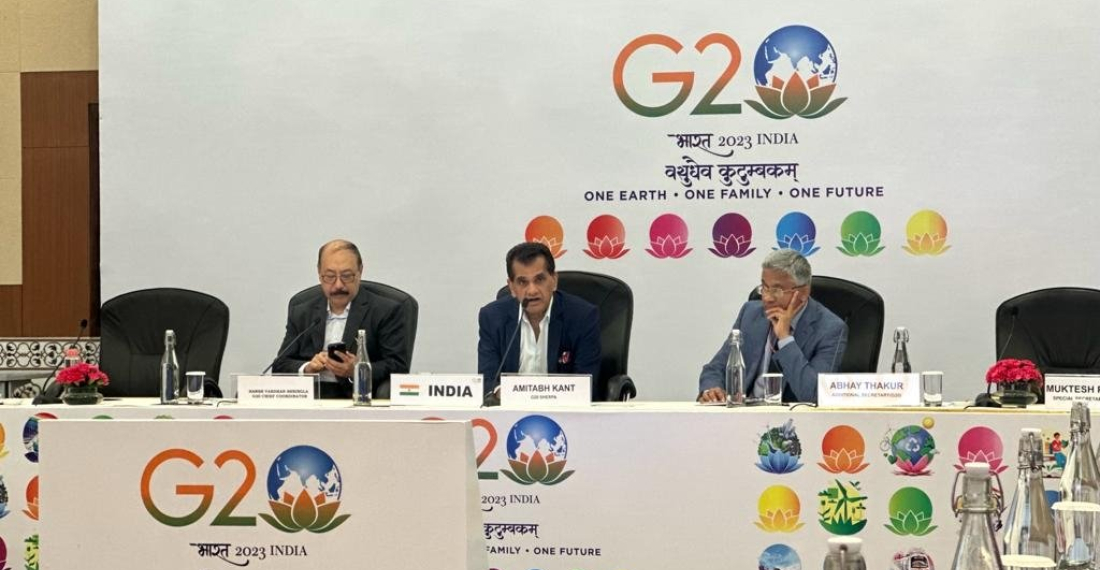India will underline the need for further diversity, the voice of the Global South as well as a human-centric approach to globalism as the country gears up for the G-20 leader’s meeting on 9 and 10 September in New Delhi under the motto "One Earth, One Family, One Future."
India, as a developing country, has placed utmost importance on inclusivity for its G-20 presidency and has within this scope invited several non-G-20 members for the range of meetings held during the country’s term. The 32 countries, in addition to the G-20 members and guest countries, are present in the programs. The G-20 includes the European Union and the major economies of all continents, including the U.S., China, Russia and Germany.
The Indian Presidency has drawn out six focus points, namely inclusive and resilient growth, progress on the sustainable development goals (SDGs), green development and life, technological transformation and digital public infrastructure, reforming multilateral institutions as well as women-led development.
India announced that it made a proposal for the African Union to be a permanent member of the G-20.
“We have tried to include as many countries as possible, most of our invitee countries are from the developing world – we have a very large representation from Africa with Nigeria, Egypt and Mauritius. We also made a proposal for the African Union to be a permanent member of the G-20 and this has been very positively received," Harsh Vardhan Shringla, the chief coordinator for India's G-20 presidency, said.
“India as a developing country has always been engaged with the global south – traditionally and historically we have strong links,” Shringla continued.
“We also worked to address a number of issues of the countries of the global south. The G-20 is a unique opportunity. For the first time, there are four emerging markets, which are Indonesia, India, Brazil, and South Africa. It is a unique opportunity to showcase the voice of the emerging markets, to reshape the world so that the voice of the unheard is heard, and growth is driven,” Kant said for his part.
The world’s economic gravity center has shifted dramatically in the past years. According to the Organisation for Economic Co-operation and Development (OECD), the share of emerging markets in global trade increased from 32% to 46% between 200 and 2019, while their share of receiving global foreign direct investment (FDI) rose from 15% to 46% and most of the world’s GDP growth occurs in those emerging markets.
India, the most populous country in the world, for its part, is aiming to become the world’s third-largest economy by 2027. In 2014 it was the 10th largest, while today it ranks fifth.






